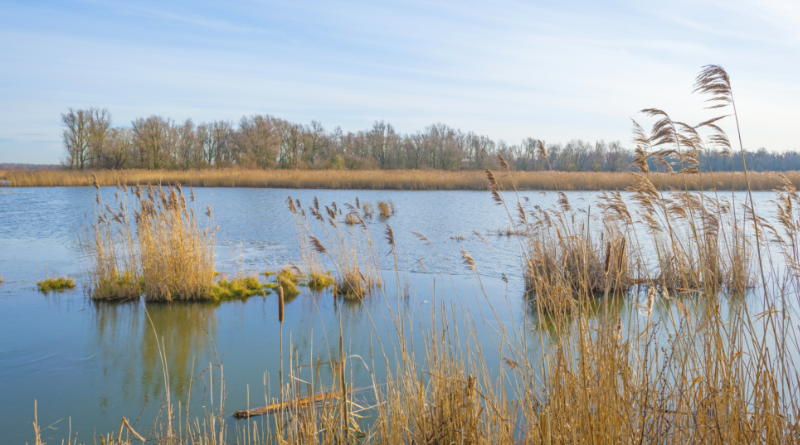Centre notifies revised guidelines for groundwater use; states urged to come up with pricing policies

The Centre has issued revised guidelines for groundwater use across the country, prohibiting new industry and mining projects in over-exploited zones and making it mandatory for existing industrial and commercial units and big housing societies to take a ‘no objection certificate’ (NoC) under ‘expanded compliance conditions’.
The new guidelines by the Central Ground Water Authority (CGWA) make it harder for industries to extract groundwater in the backdrop of over one-sixth of assessed groundwater units across India facing over-exploitation.
The new guidelines also prescribe penalties for extracting groundwater without permission and for other related offences. The new guidelines have been notified after a set of rules notified in 2018 was struck down by the National Green Tribunal (NGT).
As per the new guidelines, commercial entities extracting groundwater will be required to submit online annual water audit report including an audit of water use.
For industrial use, the guidelines state that in over-exploited assessment units, NoC shall not be granted for groundwater abstraction to any new industry except those falling in the category of micro, small and medium enterprises (MSME). “However, NoC for drinking water or for domestic use for work force, green belt use by these new industries shall be permitted. Expansion of existing industries involving increase in quantum of groundwater abstraction in over-exploited assessment units shall not be permitted. NoC shall not be granted to new packaged water industries in overexploited areas, even if they belong to MSME category”, the guidelines state.
The Centre has asked the states to also review policies that allow subsidised and free electricity to farmers, who have been blamed in several states of over-exploitation of groundwater. The states have also been asked to introduce suitable water pricing policies to reduce reliance on groundwater extraction.
The new guidelines have urged states to come up with water management plans that can be prepared by all the state ground water authorities or organizations for all over-exploited, critical and semi-critical assessment units starting with over-exploited units. Water management plans should also be reviewed and updated periodically and states should make available these plans, data on water availability and scarcity and policy framed in this regard to the CGWA or state ground water authority.
As per the new rules, “no new major industries” would be given NOCs in over-exploited assessment blocks.
“All industries/mining/ infrastructure projects drawing ground water in safe, semi-critical and critical assessment units will have to pay groundwater abstraction charges based on quantum of groundwater extraction and category of assessment unit”.
The new guidelines prescribe a minimum environmental compensation of Rs 1 lakh on industrial, mining and infrastructure users for extracting groundwater without a NoC. The amount can go up if the quantum of water extracted goes up.
The new guidelines exempt domestic consumers, rural drinking water schemes, armed forces, farmers and micro and small enterprises drawing water up to a limit from the requirement of a NoC from the CGWA.
On drinking and domestic use for residential apartments and group housing societies as well as government water supply agencies in urban areas, the guidelines state that installation of sewage treatment plants shall be mandatory for all residential apartments or group housing societies where groundwater requirement is more than 20 m3 per day. The water from such STPs should be utilized for toilet flushing, car washing or gardening.
“The NoC will be valid for a period of five years from the date of issue or till such time local Government water supply is provided to the project area, whichever is earlier”, the guidelines state.
Regarding infrastructure projects, the guidelines note that since these projects are location specific, grant of NoC to such projects located in over-exploited assessment units will not be banned. New infrastructure projects or residential buildings may require dewatering during construction activity and or use groundwater for construction. In both cases, applicants shall seek NoC from CGWA before commencement of work.
“However, in over-exploited assessment units, use of groundwater for construction activity shall be permitted only if no treated sewage water is available within 10 km radius of the site. New as well as existing infrastructure projects shall also be required to seek NoC for abstraction of groundwater”.
According to the guidelines, existing industries, infrastructure units and mining projects that have installed or constructed artificial recharge structures in compliance of the conditions prescribed in the groundwater guidelines prevailing at the time of grant of NoC or its renewal shall be eligible for a rebate of 50 per cent in the groundwater abstraction charges/groundwater restoration charges as long as the structures have demonstrated satisfactory performance and verification.
“The revenue generated from the proposed water abstraction/restoration charges shall be kept in a separate fund for implementation of site specific suitable demand/supply side interventions”, the guidelines say.
The new rules by CGWA have also proposed measures to protect wetlands stating that any excessive groundwater development within the zone of wetland area would affect the volume of water in that wetland.
Noting that protection of wetlands are being separately handled by wetland authorities, the guidelines has said that projects falling within 500 metre from the periphery of demarcated wetland areas shall mandatorily submit a detailed proposal indicating that any groundwater abstraction by the project proponent does not affect the protected wetland areas. Furthermore, before seeking permission from CGWA, the projects shall take consent or approval from the appropriate wetland authorities to establish their projects in the area.


